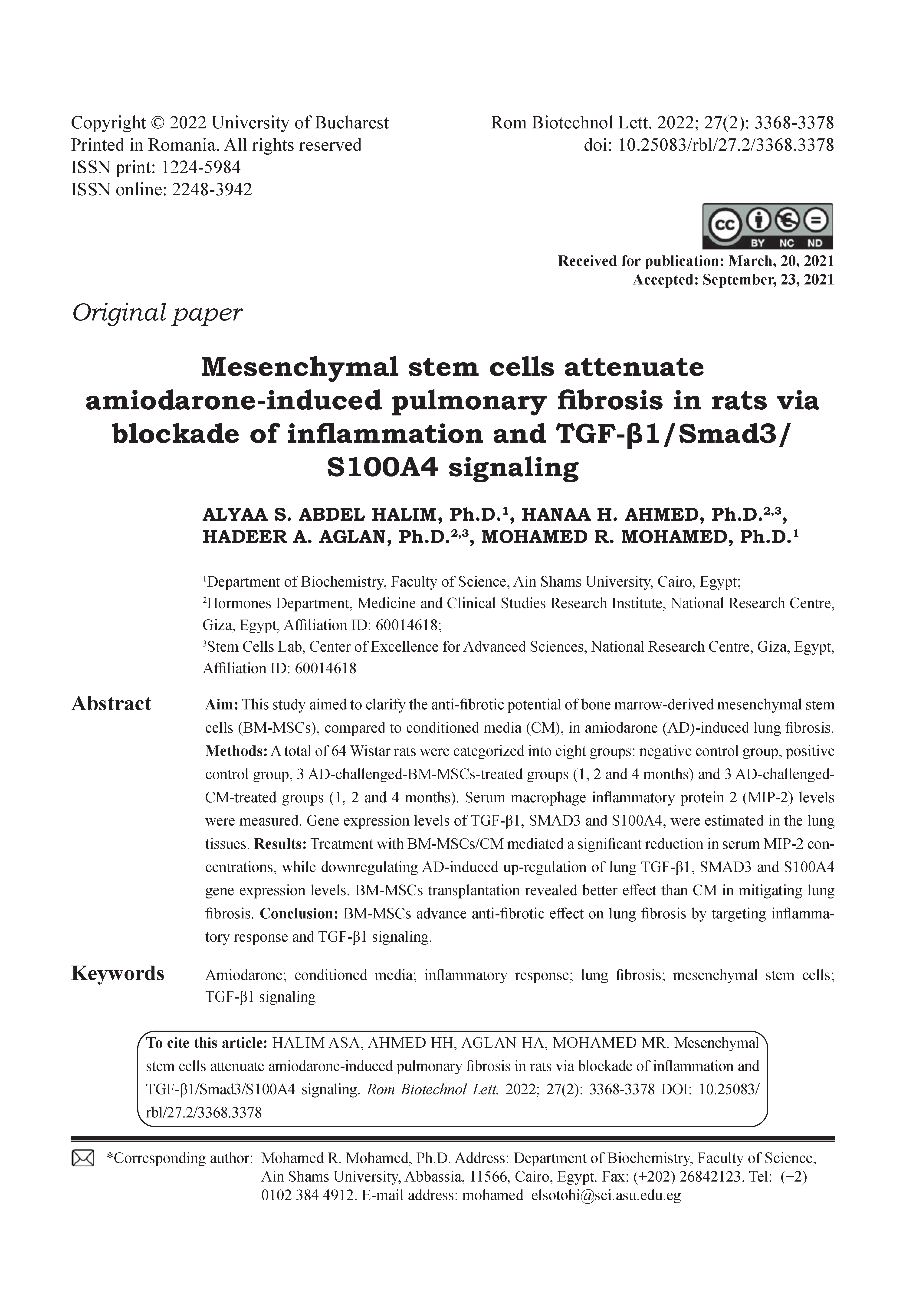Mesenchymal stem cells attenuate amiodarone-induced pulmonary fibrosis in rats via blockade of inflammation and TGF-B1/Smad3/ S100A4 signaling
DOI:
https://doi.org/10.25083/rbl/27.2/3368.3378Cuvinte cheie:
Amiodarone, conditioned media, inflammatory response, lung fibrosis, mesenchymal stem cells, TGF-B1 signalingRezumat
Aim: This study aimed to clarify the anti-fibrotic potential of bone marrow-derived mesenchymal stem cells (BM-MSCs), compared to conditioned media (CM), in amiodarone (AD)-induced lung fibrosis. Methods: A total of 64 Wistar rats were categorized into eight groups: negative control group, positive control group, 3 AD-challenged-BM-MSCs-treated groups (1, 2 and 4 months) and 3 AD-challenged-CM-treated groups (1, 2 and 4 months). Serum macrophage inflammatory protein 2 (MIP-2) levels were measured. Gene expression levels of TGF-B1, SMAD3 and S100A4, were estimated in the lung tissues. Results: Treatment with BM-MSCs/CM mediated a significant reduction in serum MIP-2 concentrations, while downregulating AD-induced up-regulation of lung TGF-B1, SMAD3 and S100A4 gene expression levels. BM-MSCs transplantation revealed better effect than CM in mitigating lung fibrosis. Conclusion: BM-MSCs advance anti-fibrotic effect on lung fibrosis by targeting inflammatory response and TGF-B1 signaling.




